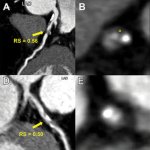
News • Coronary plaque vulnerability
Using radiomics to predict heart attacks
Researchers developed a radiomics model that uses information from coronary CT angiography images to assess coronary plaque vulnerability, a common cause of heart attacks.

Researchers developed a radiomics model that uses information from coronary CT angiography images to assess coronary plaque vulnerability, a common cause of heart attacks.
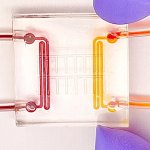
Researchers have developed a so-called “heart attack on a chip”, which could one day serve as a testbed to develop new heart drugs and even personalized medicines.

An important prospective study showcases improvement in outcomes for women with ischemic heart disease by attending a multidisciplinary women’s health center.
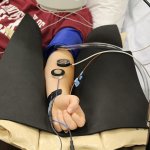
Similar to the way exercise helps muscles adapt to workouts, short, repeated bouts of reduced circulation with a blood pressure cuff may help prevent the worst outcomes of heart attacks and strokes.
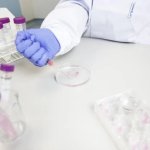
Researchers have developed a biodegradable gel that can help to improve the delivery of cells into the living heart and could form a new generation of treatments to repair heart attack damage.
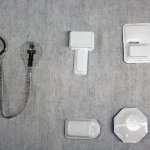
Wireless bioresorbable pacemaker bypasses need to extract non-biodegradable leads, eliminating additional risk to the patient.
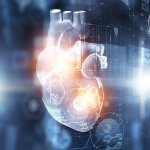
A method for delivering genetic material to the body that has proven useful in Covid-19 vaccination is now being tested as a way to repair damaged heart muscle after a heart attack.

A tiny ‘pop-up’ sensor monitors the electrical activity inside heart cells. The device could provide new insights into cardiac diseases, including myocardial infarction and arrhythmias.

A new series of protocols for treating patients with the most severe types of hearts attacks can reduce deaths by more than 50%, and eliminate gender disparities in care and outcomes, according to a new study by Cleveland Clinic.

A multidisciplinary team of scientists based at the Universidad de Valladolid and the Centro Nacional de Investigaciones Cardiovasculares (CNIC) has developed a highly efficient method for identifying the 3-dimensional features of the scar tissue formed after a myocardial infarction. The study was carried out in partnership with scientists and clinicians at Hospital Clínico San Carlos, Hospital…
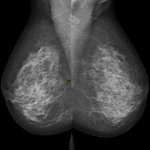
For World Patient Safety Day, Health First Europe (HFE) published a comprehensive insight report on five disease areas that affect millions of European citizens each year and how the European Union could and should do a better job for its citizens.

An AI-led device to assess coronary CT angiographs has been designed to assess cardiac plaque that may lead to myocardial infarction (MI). In his presentation ‘Vascular inflammation and cardiovascular risk assessment using coronary CT angiography’ (CCTA), Charambalos Antoniades, Professor of Cardiovascular Medicine at the University of Oxford, presented the research team’s findings during…
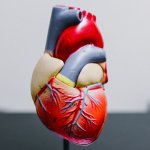
Switching off a heart muscle protein could provide a new way for drugs to combat heart failure in people who’ve had a heart attack, according to research led by the University of Cambridge and published in the journal Nature. There is an unmet need to find drugs that can successfully improve the heart’s ability to pump blood efficiently after it’s been damaged following a heart attack.…
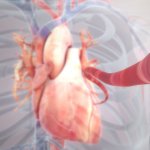
For the first time, a prospective, international study has shown that chest pain caused by problems with the very small vessels supplying blood to the heart is an important health problem that increases the risk of heart attacks, stroke and death due to cardiovascular reasons. The study, which is published in the European Heart Journal, recruited 686 patients from 14 institutions in seven…
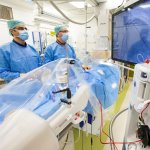
In Germany, more than 200,000 people suffer a heart attack every year. Despite good medical care, many are left with reduced cardiac output. This is particularly true for patients with severe heart attacks: more than 30 percent of those affected develop heart failure, and almost half of them die within the next five years. Experts at the Department of Cardiology and Angiology at Hannover Medical…
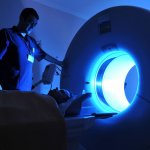
A new study from the University of Surrey and University College London has revealed that treatment for heart attacks could be improved thanks to a novel method of evaluating heart function using contrast-based MRI scans. According to the British Heart Foundation, heart and circulatory diseases cause more than a quarter (27 per cent) of all deaths in the UK, which equates to more than 160,000…
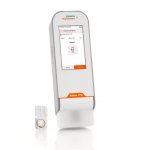
Siemens Healthineers announced the company's Atellica VTLi Patient-Side Immunoassay Analyzer has obtained CE mark and is expected to be available later this spring. The Atellica VTLi analyzer provides lab standard, high-sensitivity cardiac troponin I (hs-cTnI) test results to clinicians in eight minutes using a patient's fingerstick blood sample. With this industry first technology, Siemens…

Chest pain is misdiagnosed in women more frequently than in men, according to research presented at ESC Acute CardioVascular Care 2021, an online scientific congress of the European Society of Cardiology (ESC). The study also found that women with chest pain were more likely than men to wait over 12 hours before seeking medical help. “Our findings suggest a gender gap in the first evaluation of…

Over 23 million people around the world suffer from heart failure. The disease is usually treated with a transplant, but because donated hearts are hard to come by, there is an ongoing need for alternative therapies. With new developments in cardiac assistance systems, we can delay the need for a transplant – or even eliminate it altogether,” says Professor Yves Perriard, head of EPFL’s…
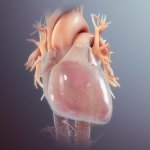
A study of over a thousand cancer patients treated with immunotherapy drugs has found these patients are at greater risk of heart problems, including death from heart attack or stroke. The patients had either lung cancer or malignant melanoma (a type of skin cancer), for which immune checkpoint inhibitors such as a programmed cell death-1 (PD1) inhibitors or cytotoxic T-lymphocyte-associated…

The new generation troponin I assay unveiled by Beckman Coulter is helping improve heart attack diagnosis. Delivering high sensitivity, and rapid result turnaround times, every element of the Access hsTnI assay has been redeveloped and updated, including the antibodies and the paramagnetic particles used. As specialists in developing and manufacturing products that simplify and automate complex…
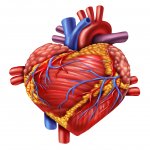
Heart patients hospitalised with COVID-19 can safely continue taking angiotensin-converting enzyme (ACE) inhibitors and angiotensin receptor blockers (ARBs), according to the BRACE CORONA trial presented in a Hot Line session today at ESC Congress 2020.(1)
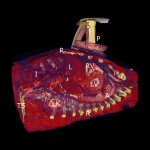
Rapid first aid during cardiac arrest makes the difference between life and death. But what happens to the heart and the internal organs when people come running and begin to give well-meaning but heavy-handed heart massage as they attempt to keep the person who has suffered a cardiac arrest alive? A research collaboration between the Department of Forensic Medicine at Aarhus University and the…
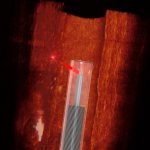
A team of researchers led by the University of Adelaide and University of Stuttgart has used 3D micro-printing to develop the world’s smallest, flexible scope for looking inside blood vessels. The camera-like imaging device can be inserted into blood vessels to provide high quality 3D images to help scientists better understand the causes of heart attack and heart disease progression, and could…
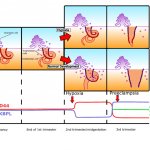
The discovery of two novel biomarkers, called FKBPL and CD44, has the potential to change the way preeclampsia is managed according to research published in the Journal of Clinical Endocrinology and Metabolism. Preeclampsia can cause high blood pressure and organ failure in mothers and lead to preterm births and even stillbirth.